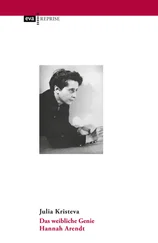Julia Kristeva
Teresa, My Love: An Imagined Life of the Saint of Avila

DeAgostini/Leemage.

akg-images/Pirozzi.
Abbreviations and Chronology
ABBREVIATIONS
The Book of Her Foundations: Found ., followed by number and paragraph
The Book of Her Life: Life , followed by chapter and paragraph
The Constitutions: Const ., followed by the paragraph number
Letters: Letter , followed by letter number
Meditations on the Song of Songs: Medit ., followed by chapter and paragraph
On Making the Visitation: Visitation , followed by number and paragraph
Poems: Poems , followed by title
A Satirical Critique (Vejamen): Critique
Soliloquies (Exclamations): Sol ., followed by number and paragraph
Spiritual Testimonies (Relations): Testimonies , followed by number and paragraph
The Interior Castle : Roman numeral, followed by D ( Dwelling Places ), chapter, and paragraph
The Way of Perfection: Way , followed by chapter and paragraph
CHRONOLOGY OF WORKS
1560–1563
Testimonies
1–3
1562
First draft of
The Book of Her Life
1563
First draft of the
Constitutions
1565
The Book of Her Life
1566–1567
The Way of Perfection
1567
The Constitutions
of the Discalced Nuns
1569
New series of lesser
Testimonies
: 8–27
1573
The Book of Her Foundations
, chaps. 1–26
1575–1576
Testimonies
4–5
1576
Manner of Visiting Monasteries
; continuation of
Foundations
, chaps. 21–27
1577
The Interior Castle
1577–1580
Letters
(almost 200)
1581
Testimonies
6
1580–1582
Completion of
Foundations
(chaps. 28–31)
1581–1582
Final letters (around 100)
The Soliloquies , the Meditations on the Song of Songs (predating The Interior Castle ), and the Poems are difficult to date with accuracy.
REFERENCES
The English translations used for all quotations from Teresa of Avil a come from the following sources.
The Collected Works of St. Teresa of Avila . trans. Kieran Kavanaugh and Otilio Rodríguez. 3 vols. Washington, D.C.: ICS, 1976–1985.
The Collected Letters of St. Teresa of Avila . trans. Kieran Kavanaugh. 2 vols. Washington, D.C.: ICS, 2001–2007.
Any italics in quotations have been added by Julia Kristeva.
Part 1. The Nothingness of All Things
Chapter 1. PRESENT BY DEFAULT
We are not angels, but we have a body.
Teresa of Avila, The Book of Her Life
Or perhaps there is only a single mind, in which everybody has a share, a mind to which all of us look, isolated though each of us is within a private body, just as at the theater.
Marcel Proust, Within a Budding Grove
The flung-back face of a woman asleep, or perhaps she has already died of pleasure, her open mouth the avid door to an empty body that fills before our eyes with a boiling of marble folds…You must recall that sculpture by Bernini, The Ecstasy of Saint Teresa ? 1The artist’s inspiration was Teresa de Cepeda y Ahumada (1515–1582), whose religious name was Teresa of Jesus, better known as Saint Teresa of Avila. At the height of the Renaissance, her love of God quivered with the intensity of the beatus venter that Meister Eckhart knew so well. Her ecstatic convulsions made her into a sumptuous icon of the Counter-Reformation. Though she was, in Dostoyevsky’s sense, possessed, she was bathed in the waters of desire rather than, like Mary Magdalene, in tears — for her body and soul were fused with the absent body of the Other. “Where is He, where have they taken Him?” fretted the holy women at Golgotha. 2
Teresa loved to read; they made her write. In a style quick with emotion, yet firm and precise, she portrayed the blend of pain and jubilation she felt with an emphasis on the deft agent of her undoing: Eros, armed with a spear, the iron tip of God Himself. “ Prudentia carnis inimica Deo ” (Prudence of the flesh is inimical to the Lord), so the Church Fathers taught. In this spiritual, illusory marriage to the Other, the unreachable Father is relayed in the praying woman’s fantasy by a heavenly stripling, an undefiled brother, a male mirage of Teresa herself, whose voluptuous pride will never pierce her hymen.
Oh, how many times when I am in this state do I recall that verse of David: Quemadmodum desiderat cervus ad fontes aquarum [As the hart panteth after the water brooks, so panteth my soul after thee, O God. (Ps. 42:2)]…When this thirst is not too severe, it seems it can be appeased somewhat; at least the soul seeks some remedy.…At other times the pain becomes so severe that the soul can do neither penance nor anything else , for the whole body is paralyzed. One is unable to stir with either the feet or the arms. Rather, if one is standing, one sits down, like a person being carried from one place to another, unable even to breathe.…The Lord wanted me while in this state to see sometimes the following vision: I saw close to me toward my left side an angel in bodily form.…the angel was not large but small; he was very beautiful, and his face was so aflame that he seemed to be one of those very sublime angels that appear to be all afire . They must belong to those they call the cherubim.…I saw in his hands a large golden dart and at the end of the iron tip there appeared to be a little fire. It seemed to me that this angel plunged the dart several times into my heart and that it reached deep within me. When he drew it out, I thought he was carrying off with him the deepest part of me; and he left me all on fire with great love of God . The pain was so great that it made me moan, and the sweetness this greatest pain caused me was so superabundant that there is no desire capable of taking it away; nor is the soul content with less than God. The pain is not bodily but spiritual, although the body doesn’t fail to share in some of it, and even a great deal .…But when this pain I’m now speaking of begins , it seems the Lord carries the soul away and places it in ecstasy ; thus there is no room for pain or suffering, because joy soon enters in [ así no hay lugar de tener pena ni de padecer, porque viene luego el gozar ]. 3
Desire existed before she did, and this woman knows it. Nevertheless she is consumed: a burning wound, a delightful pain. In the key of the Song of Songs, but by the hand for the first time of a European woman, pleasure unto death is conveyed with a sensual exactitude that defies decorum. Make no mistake: the fire that “carries off” the deepest part of her suggests that rather than capture the potency of the “large dart,” as in the male fantasy of the castrating female, Teresa gifts it to the angel. It is in dispossession and exile that she joins with the Other and becomes divine. In the same vein, at once a shooting star and a clap of thunder, she resumes her account in the “Sixth Dwelling Places” of The Interior Castle , her spiritual testament:
Читать дальше














